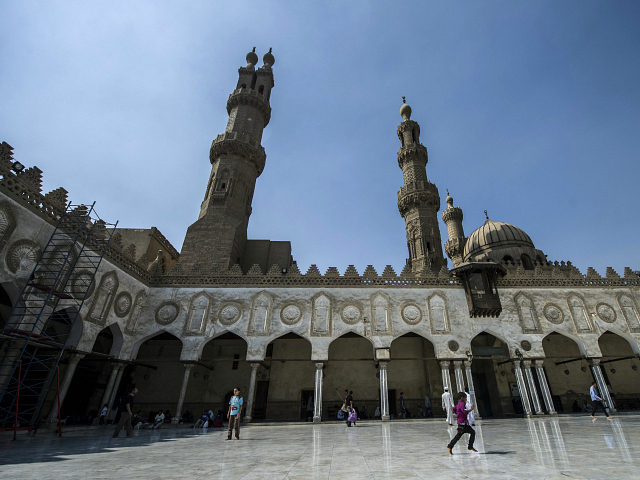Turkey is building an “International Islamic University” that is intended to challenge the dominance of the Al-Azhar University in Cairo as the seat of Sunni Muslim scholarship.
Turkey’s Yeni Safak News sneers at Egyptian President Abdel Fattah el-Sisi as a “putschist,” which happens to be one of the Turkish ruling party’s preferred terms for alleged 2016 coup mastermind Fethullah Gulen, and accuses Sisi of “sabotaging” religious education at Al-Azhar by imposing political controls on the university’s Islamic education.
According to Yeni Safak, the new Turkish institution will be dedicated to battling organizations that exploit Islam for nefarious ends, such as the Islamic State, Boko Haram, and of course Fethullah Gulen’s followers, whom the government officially refers to as the “Fethullah Terrorist Organization” (FETO). One suspects from this description that Turkey’s new Islamic university will not be entirely free of the political influences that contaminated the curriculum at Al-Azhar.
The International Islamic University will offer instruction in Arabic, Turkish, and English, and will count a number of Syrian war refugees among its faculty. It should be open in time for the 2019-2020 school year and hopes to receive accreditation from foreign higher education systems. The university will incorporate a number of existing schools, so it is not a massive construction project that would take many years to complete. The anticipated student population will number in the “tens of thousands,” per Yeni Safak.
Plans to create the Islamic university in Istanbul have been on the books since 2014, and it was positioned as a competitor to Al-Azhar since its inception. The head of Turkey’s religious ministry, the Diyanet, said in 2014 that Muslims “bring suffering, violence, and sorrow to each other,” criticizing existing institutions in Egypt, Pakistan, Iran, Malaysia, and Saudi Arabia for their failure to “find solutions to problems in the world.” He happened to be standing in Mecca when he said it, which must have taken a little cheek to pull off.
The Washington Post listed a few other reasons for Turkey’s plan to create the new university, including the ongoing political unrest in Egypt and Syria (which was also once considered a center of Islamic scholarship), Saudi Arabia turning students off with its “literalist interpretation of Islam,” Turkey’s program to modernize Islamic teaching by mixing it with secular social sciences, and the Turkish government’s general determination to position itself as a power player in the Sunni Muslim world.
The position of Turkey’s International Islamic University as, for want of a better term, a more progressive version of Al-Azhar makes for an interesting contrast with Turkey’s general slide backwards from secular government under President Recep Tayyip Erdogan. Then again, the secular Turkey established by national godfather Mustafa Kemal Ataturk took fairly stern measures to separate Islam from the state, which would have precluded a project on the scale of the new university.
Erdogan has been urging the Muslim world to improve its educational systems, warning of the “brain drain” caused by talented students seeking a better education and professional life in the West. A more modern style of Islamic university, more open to Muslims of offbeat sects, would fit into that program. It would also produce a new wave of teachers who can bring Turkey’s brand of Islam, and politics, to Muslims across the world.
If the new university pushes hard against extremists, it won’t have much trouble attracting positive notices from Western leaders eager to encourage educational efforts against “violent extremism.” The first few graduating classes in the next decade will be interesting to watch.

COMMENTS
Please let us know if you're having issues with commenting.